'I feel more safe here': Migrant workers now living at some LTA construction sites
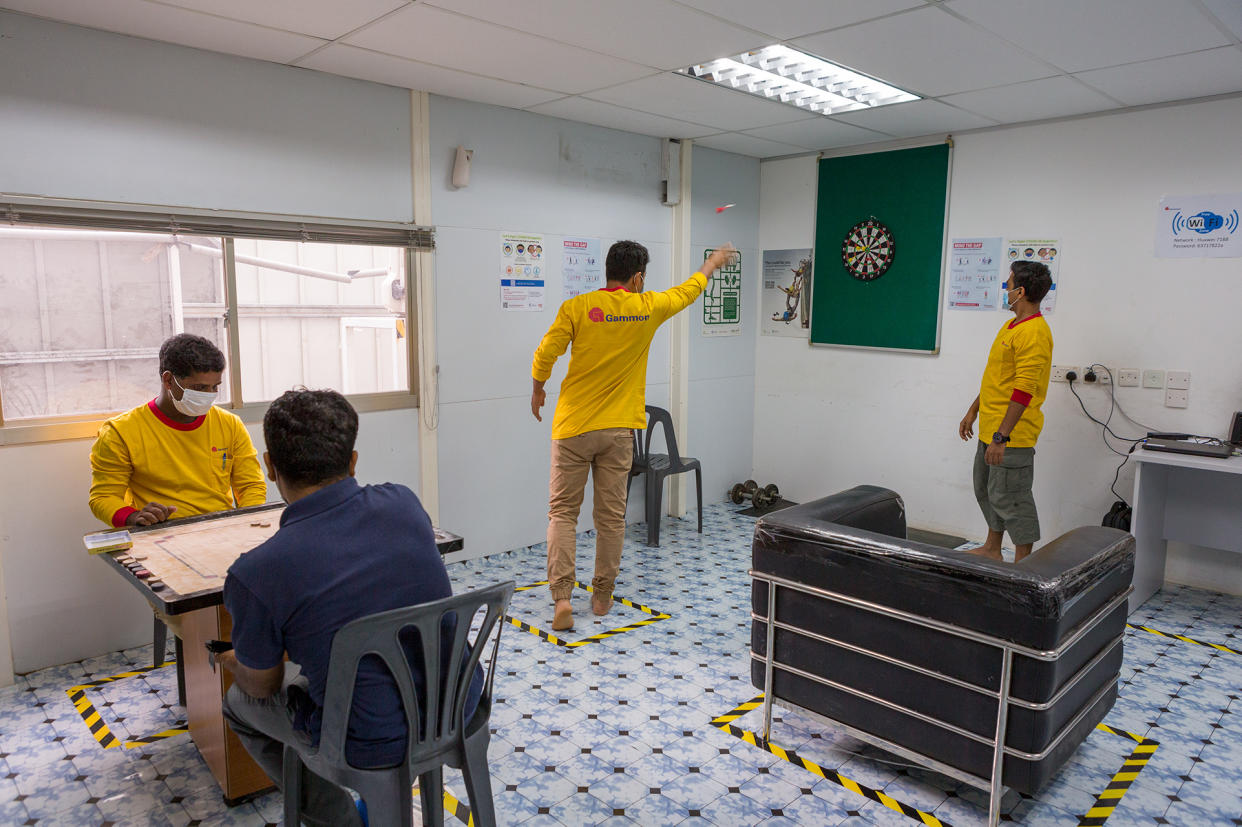
SINGAPORE — Shamim Khan has been living in a construction site along Kim Seng Road since mid-April.
The 35-year-old Bangladeshi construction worker is one of 18 migrant workers who have been moved to temporary living quarters at the site where the Havelock MRT station is being built.
While all construction work in Singapore has been stopped since 22 April, Shamim and his colleagues have been tasked with carrying out essential services such as site maintenance and vector control.
The workers were brought in from the Kranji Lodge dormitory, which as of noon on Wednesday (6 May) has seen 425 confirmed cases of COVID-19 infection. Over 19,000 migrant workers living in Singapore’s dormitories have also tested positive for the coronavirus.
The workers at the Havelock site currently stay in two rooms, which were converted into accommodations from the site offices, with their beds spaced apart for safe distancing.
“I feel more safe here,” said the married father of one, when asked during a media visit on Tuesday if he wished to return to the dormitory.
“Honestly, I’m not worried (about getting infected) because this is a very good country. The Singapore government announced... it would take care of us,” he added.

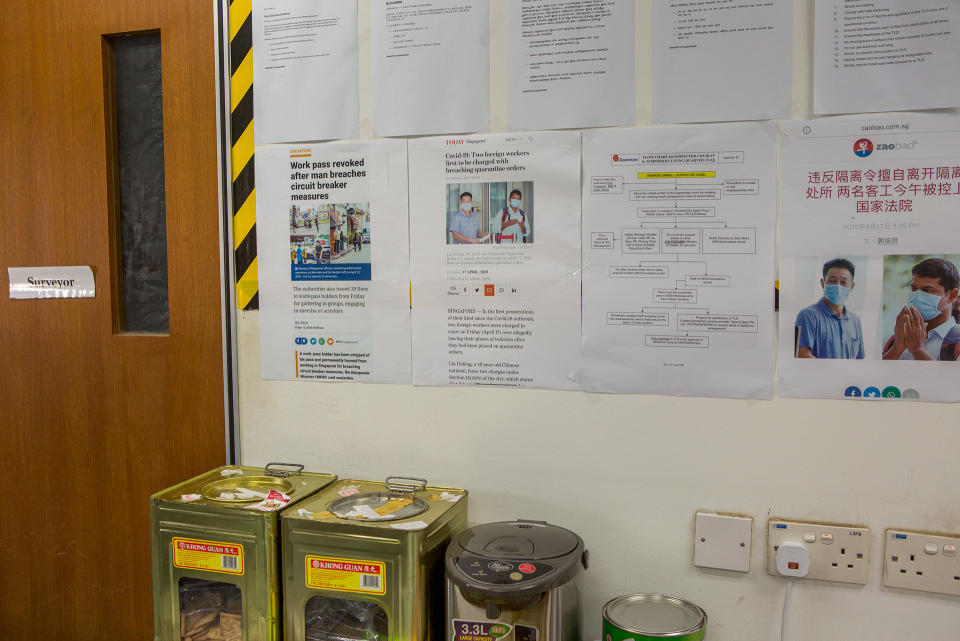
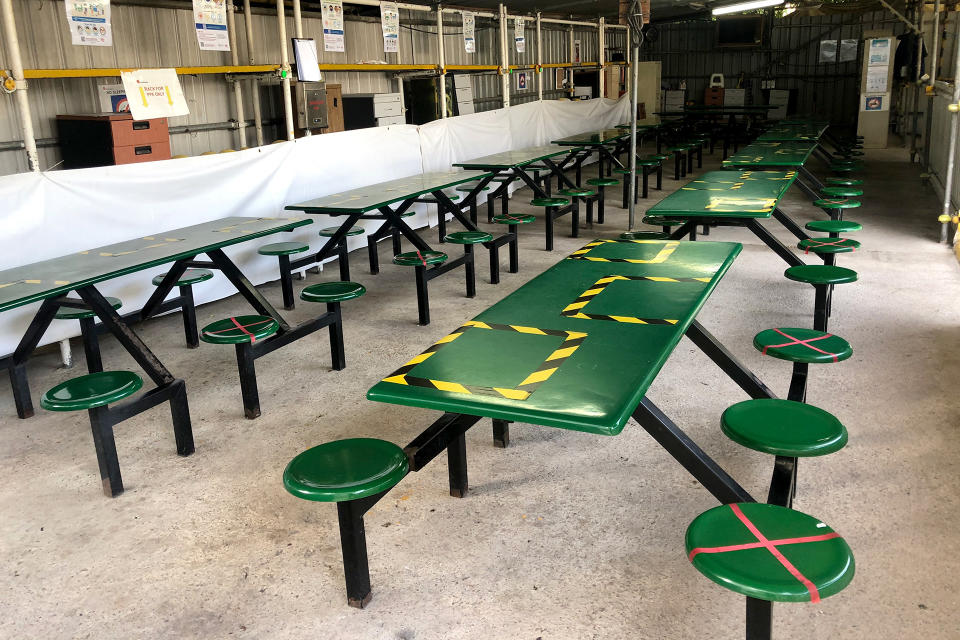
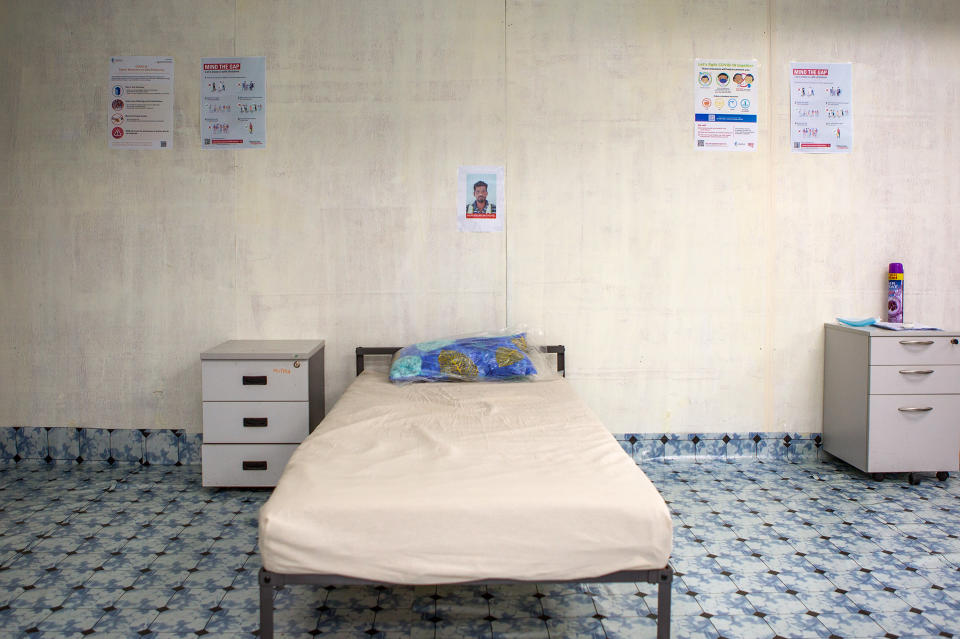
Along with catered meals and air-conditioned rooms, Shamim said the workers have also been provided with free Wi-Fi connections to keep in touch with their friends and family, as well as a recreation room in which to relax after work.
According to the Land Transport Authority, there are currently 111 such temporary living quarters spread across its road and rail worksites. Together, they house over 900 workers.
The contractors building the Havelock station, Gammon Construction, began moving healthy workers out of the dormitory in February. Those brought to the site are first isolated in a separate room for two weeks before they are allowed to join their colleagues in the shared rooms.
None of the workers are allowed to leave the site, so as to minimise their exposure to others. Wearing face masks on-site is also mandatory at all times, except for when the workers are eating, bathing, exercising or sleeping.
Besides work, Gammon has also been conducting twice weekly online training sessions for the workers – in areas such as basic English and workplace safety.
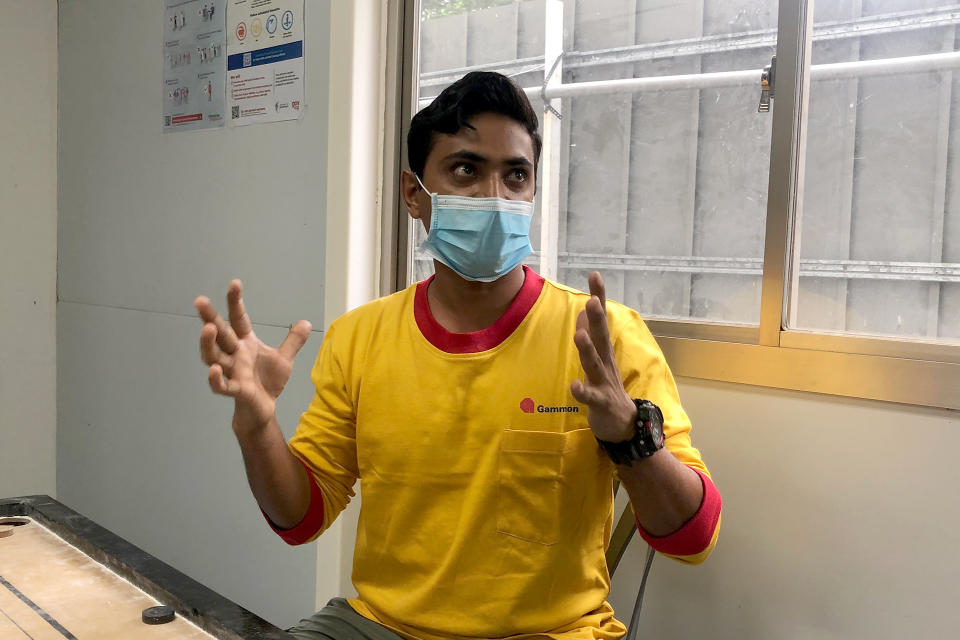
Missing friends, going out for food
Asked what he missed most during the circuit breaker period, Shamim said it was the simple things like going out to buy food with friends and sharing meals with them.
“We can still talk – here are video calls – but we are missing the physical contact. Like physically we cannot say ‘Hi’, cannot shake hands,” he said.
While Shamim said he knew fellow migrant workers who have been infected with the virus, none fell severely ill as a result. “They never felt anything, but tested positive,” he said, adding that these other workers were given some medicine, food and asked to rest as part of their recovery.
Shamim, who has worked in Singapore for 12 years, said he is looking forward to returning home for a few weeks once the pandemic situation is resolved and things have settled down. He was due to make the trip on 19 May but that plan has since been postponed.
From conversations with his family back home, Shamim said they have “full confidence” in Singapore’s ability to take care of its migrant workers at this time. “Singapore is more developed than our country... what the Prime Minister says, they will implement,” he said.
As for concerns over his continued employment, Shamim said he could only wait to see how things develop.
“The economy (and) many things are seeing problems... My company is suffering many problems, I’m also suffering problems... I’m not worried about that. I just pass the time,” he said.
Stay in the know on-the-go: Join Yahoo Singapore's Telegram channel at http://t.me/YahooSingapore
More Singapore stories:
COVID-19: Singapore sees 741 new cases, total now at 20,939
POFMA: Facebook pages of Singapore States Times, Alex Tan classified as Declared Online Locations
COVID-19 safeguards in foreign worker dorms 'not sufficient', says Lawrence Wong: report



